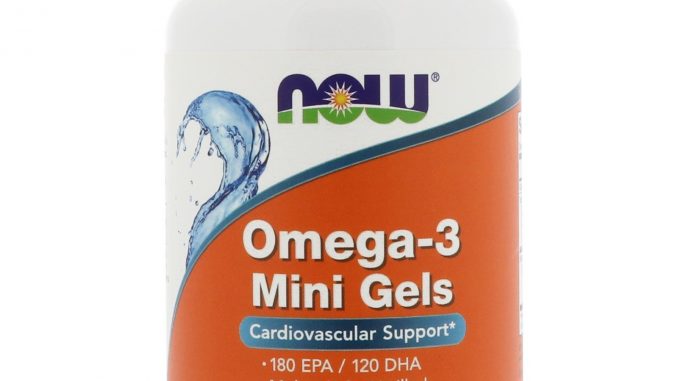
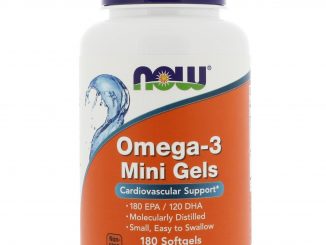
Omega-3 Mini Gels, 180 Softgels (Now Foods) – Ingredients
- Fish Oil
Olej rybny jest zalecany do leczenia hipertriglicerydemii i zapobiegania wtórnym zaburzeniom sercowo-naczyniowym. Olej rybny jest głównym źródłem ω-3-wielonienasyconych kwasów tłuszczowych (PUFA), takich jak kwas eikozapentaenowy (EPA) i kwas dokozaheksaenowy (DHA). Badania kliniczne sugerują, że olej rybny nie tylko zapobiega występowaniu szkodliwych zdarzeń sercowo-naczyniowych, ale także obniża śmiertelność z przyczyn sercowo-naczyniowych. Fish Oil: Fish Oil,
Fish Oil: Fish Oil,
The Best Supplements – Unique Ingredient Identifier: TBSI ID: ISC99190,
References:
Cardiovascular Support: BALAKUMAR, Pitchai; TANEJA, Gaurav Fish Oil and Vascular Endothelial Protection: Bench to Bedside. Free Radical Biology and Medicine, 2012, 53.2: 271-279. PMID:22584102,
Brain / Mental Clarity: BOESPFLUG, E. L.; et al. Fish Oil Supplementation Increases Event-Related Posterior Cingulate Activation in Older Adults With Subjective Memory Impairment. The journal of nutrition, health & aging, 2016, 20.2: 161-169. PMID:26812512, FORTES CAVALCANTI DE MACêDO, Patrícia; et al. Fish Oil and Treadmill Exercise Have Age-Dependent Effects on Episodic Memory and Oxidative State of the Hippocampus. Applied Physiology, Nutrition, and Metabolism, 2017, 42.5: 503-510. PMID:28177723.
- Omega-3 Acids
Kwasy tłuszczowe omega-3 są niezbędnymi składnikami odżywczymi w diecie, a jedną z ich ważnych ról jest dostarczanie kwasu tłuszczowego składającego się z 22 atomów węgla i 6 podwójnych wiązań znanych jako kwas dokozaheksaenowy (DHA) dla wzrostu i funkcjonowania tkanki nerwowej. Niewystarczające spożycie kwasów tłuszczowych omega-3 zmniejsza DHA i zwiększa ilość kwasów tłuszczowych omega-6 w mózgu. Badania na ludziach sugerują, że odpowiednie spożycie ω-3 PUFA może spowolnić związany z wiekiem spadek funkcji poznawczych, a także może chronić przed ryzykiem demencji starczej. Kwasy tłuszczowe omega-3 korzystnie wpływają na wiele czynników ryzyka, w tym ciśnienie krwi, czynność naczyń krwionośnych, czynność serca i lipidy we krwi, a także działają przeciwzakrzepowo, przeciwzapalnie i przeciwutleniająco. Suplementacja kwasami tłuszczowymi Omega-3 (ω3) jest zalecana osobom z podwyższonym poziomem trójglicerydów we krwi i pacjentom z chorobą niedokrwienną serca.
Omega-3 Acids: Omega-3 Acids, The Best Supplements – Unique Ingredient Identifier: TBSI ID: IS317040, References: Brain / Mental Clarity: INNIS, Sheila M. Dietary Omega 3 Fatty Acids and the Developing Brain. Brain research, 2008, 1237: 35-43. PMID:18789910, LAYé, Sophie; et al. Anti-Inflammatory Effects of Omega-3 Fatty Acids in the Brain: Physiological Mechanisms and Relevance to Pharmacology. Pharmacological Reviews, 2018, 70.1: 12-38. PMID:29217656, Cardiovascular Support: MORI, Trevor A. Marine OMEGA-3 Fatty Acids in the Prevention of Cardiovascular Disease. Fitoterapia, 2017, 123: 51-58. PMID:28964873, JAIN, A. P.; AGGARWAL, K. K.; ZHANG, P. Y. Omega-3 Fatty Acids and Cardiovascular Disease. Eur Rev Med Pharmacol Sci, 2015, 19.3: 441-5. PMID:25720716.
- Docosahexaenoic Acid (C22H32O2)
Wiadomo, że kwas dokozaheksaenowy (DHA), wielonienasycony kwas tłuszczowy (PUFA) wzbogacony w fosfolipidy w mózgu i siatkówce, odgrywa wielofunkcyjną rolę w zdrowiu i chorobach mózgu. Włączenie dużej ilości DHA do diety poprawia zdolność uczenia się, podczas gdy niedobory DHA są związane z niedoborami uczenia się. DHA jest pobierany przez mózg w przeciwieństwie do innych kwasów tłuszczowych. DHA hamuje rozwój stanu zapalnego w komórkach śródbłonka, zmienia funkcję i regulację biomarkerów naczyniowych oraz zmniejsza ryzyko sercowo-naczyniowe. Docosahexaenoic Acid: Docosahexaenoic Acid, DHA, Doconexent, Cervonic acid,
Docosahexaenoic Acid: Docosahexaenoic Acid, DHA, Doconexent, Cervonic acid,
PubChem CID: 445580,
Chemical Abstracts Service: CAS: 6217-54-5,
ChemIDplus: 6217-54-5,
FDA Substance Registration System – Unique Ingredient Identifier: UNII: ZAD9OKH9JC,
The Best Supplements – Unique Ingredient Identifier: TBSI ID: IS3567E0,
References:
Brain / Mental Clarity: SUN, Grace Y.; et al. Docosahexaenoic Acid (DHA): An Essential Nutrient and a Nutraceutical for Brain Health and Diseases. Prostaglandins, Leukotrienes and Essential Fatty Acids, 2018, 136: 3-13. PMID:28314621, HORROCKS, Lloyd A.; YEO, Young K. Health Benefits of Docosahexaenoic Acid (DHA). Pharmacological research, 1999, 40.3: 211-225. PMID:10479465,
Cardiovascular Support: YAMAGATA, Kazuo Docosahexaenoic Acid Regulates Vascular Endothelial Cell Function and Prevents Cardiovascular Disease. Lipids in health and disease, 2017, 16.1: 118. PMID:28619112.
- Eicosapentaenoic Acid (C20H30O2)
Kwas eikozapentaenowy kwasu tłuszczowego omega-3 (EPA) ma wiele działań potencjalnie zapewniających korzyści sercowo-naczyniowe, w tym obniżenie poziomu trójglicerydów w surowicy (TG) i cholesterolu lipoprotein o niskiej gęstości (non-HDL-C) oraz potencjalnie zmniejszenie kluczowych etapów aterogenezy. Eicosapentaenoic Acid: Eicosapentaenoic Acid, EPA, Timnodonic Acid, Icosapent,
Eicosapentaenoic Acid: Eicosapentaenoic Acid, EPA, Timnodonic Acid, Icosapent,
PubChem CID: 446284,
Chemical Abstracts Service: CAS: 10417-94-4,
ChemIDplus: 10417-94-4,
FDA Substance Registration System – Unique Ingredient Identifier: UNII: AAN7QOV9EA,
The Best Supplements – Unique Ingredient Identifier: TBSI ID: ISBF7F70,
References:
Cardiovascular Support: GOLZARI, Mohammad Hassan; et al. Effect of Eicosapentaenoic Acid (EPA) Supplementation on Cardiovascular Markers in Patients With Type 2 Diabetes Mellitus: A Randomized, Double-Blind, Placebo-Controlled Trial. Diabetes & Metabolic Syndrome: Clinical Research & Reviews, 2018, 12.3: 411-415. PMID:29588138, BRINTON, Eliot A.; MASON, R. Preston Prescription omega-3 Fatty Acid Products Containing Highly Purified Eicosapentaenoic Acid (EPA). Lipids in health and disease, 2017, 16.1: 23. PMID:28137294,
Brain / Mental Clarity: BAZINET, Richard P.; et al. Brain Eicosapentaenoic Acid Metabolism as a Lead for Novel Therapeutics in Major Depression. Brain, behavior, and immunity, 2019, Jul 3: . PMID:31278982, CEDERHOLM, Tommy; SALEM JR, Norman; PALMBLAD, Jan ω-3 Fatty Acids in the Prevention of Cognitive Decline in Humans. Advances in nutrition, 2013, 4.6: 672-676. PMID:24228198. - Eicosapentaenoic Acid (C20H30O2)
- Docosahexaenoic Acid (C22H32O2)
- Omega-3 Acids
| Supplement Facts | ||
|---|---|---|
| Name: | Omega-3 Mini Gels, 180 Softgels | |
| Serving Size: | 2 Softgels | |
| Servings Per Container: | 90 | |
| Amount Per Serving | %Daily Value* | |
| Calories | 10 | |
| Total Fat | 1 g | 1%×) |
| Saturated Fat | < 0.5 g | 1%×) |
| Polyunsaturated Fat | 0.5 g | † |
| Monounsaturated Fat | < 0.5 g | † |
| Natural Fish Oil Concentrate | 1 g (1,000 mg) | † |
| Omega-3 Fatty Acids: Eicosapentaenoic Acid (EPA) Docosahexaenoic Acid (DHA) |
600 mg 360 mg 240 mg |
† † † |
| ×) Percent Daily Values are based on a 2,000 calorie diet. † Daily Value not established. |
||
| Manufacturer: | Now Foods |
|---|---|
| Manufacturer Code: | 01685 |
| UPC Code (gtin12): | 733739016850 |
| Package Quantity | |
| Count | 180 |
Other ingredients
Softgel capsule (bovine gelatin, glycerin, water) and vitamin E (as natural d-alpha tocopherol).
Contains fish (sardines, anchovies, mackerel). Vitamin E from soy.
Not manufactured with yeast, wheat, gluten, corn, milk, egg or shellfish ingredients. Produced in a GMP facility that processes other ingredients containing these allergens.
Omega-3 Mini Gels, 180 Softgels – Suggested Use
Take 2 softgels 1 to 3 times daily with food.
| Recommended Intake | |||
|---|---|---|---|
| Dose Unit | Dose Value | Frequency | Target Population |
| softgel | 2 | 1 to 3 times daily | adults |
Warnings
- Caution: For adults only. Consult physician if pregnant/nursing, taking medication, or have a medical condition. Keep out of reach of children.
- Store in a cool, dry place after opening.
- Natural color variation may occur in this product.
- Do not eat freshness packet. Keep in bottle.
Dietary supplements similar to Omega-3 Mini Gels, 180 Softgels (Now Foods)
The Omega-3 Mini Gels, 180 Softgels (Now Foods) dietary supplement is available in Poland and many others countries around the world. In Poland this supplement contains: DHA, EPA, Fish Oil and Omega-3 Acids in its composition.


























































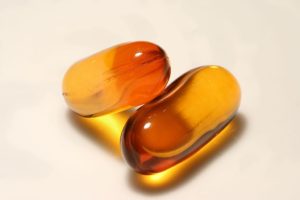
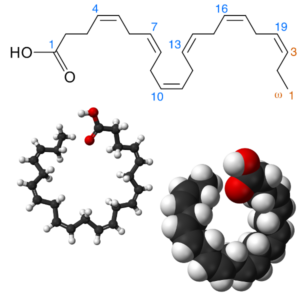
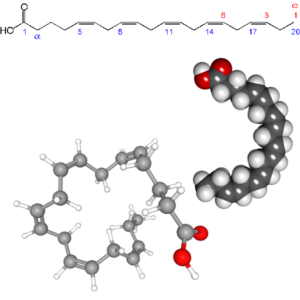
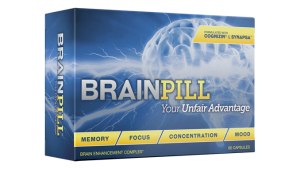
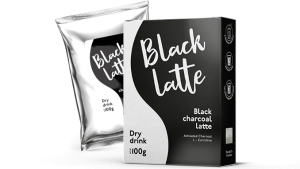
Leave a Reply